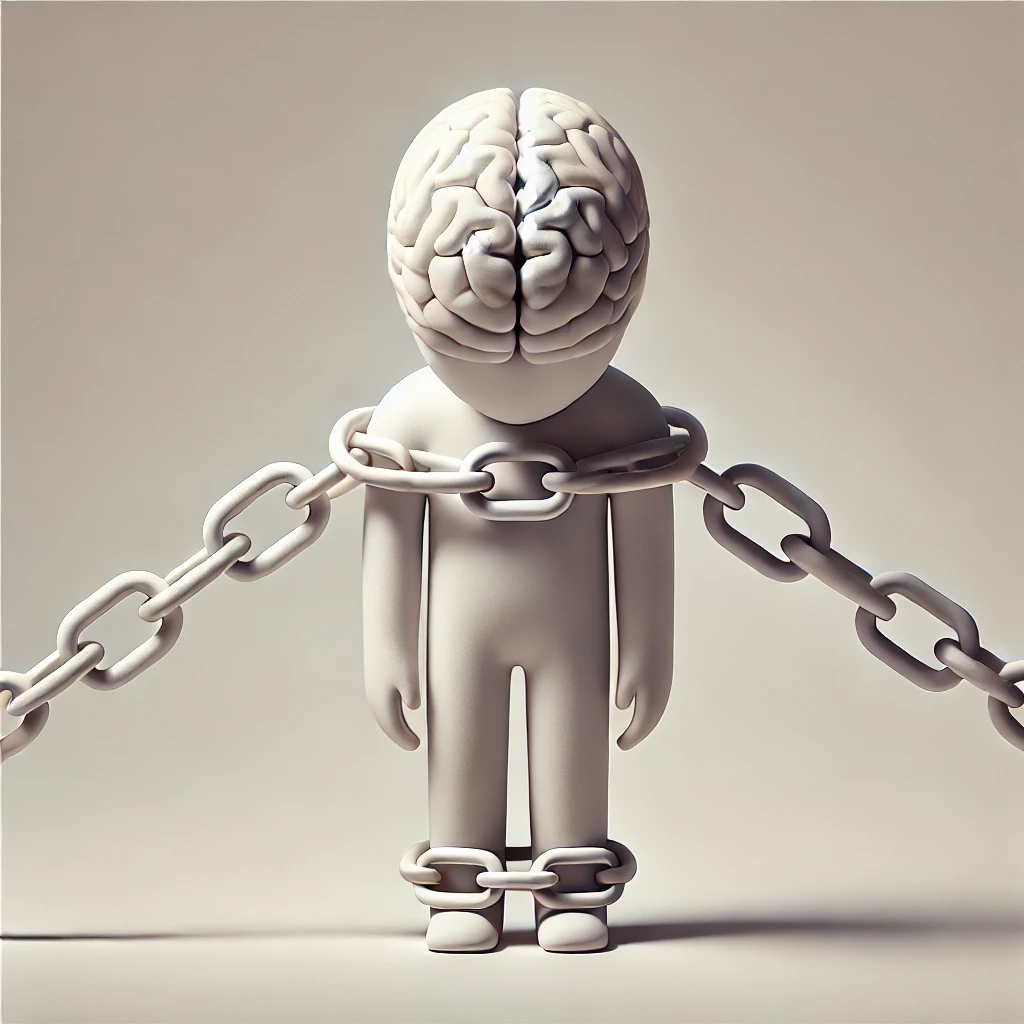Your cart is currently empty!
The New Newspeak

As we begin to enter the new age of Artificial Intelligence, we can perhaps make a few observations:
- Artificial Intelligence is incredibly useful
- Artificial General Intelligence, where the AI can match or better any human output, is a long way off.
- People may not need AGI to manipulate a populace.
I was reading an AI discussion on a prominent tech forum recently, and came across the following quote from Frank Herbert’s Dune:
“Once men turned their thinking over to machines in the hope that this would set them free. But that only permitted other men with machines to enslave them.”
Firstly, I was taken aback at how far ahead of its time that quote was. Secondly, I wanted to analyse why men turned their thinking over to machines in the first place.
Why are we using AI (which is a different question to why create AI)?
I think that what is happening here is something of a vicious cycle, whereby our brains are locked into a diminishing process.
Firstly, human beings, by and large, have an aversion to performing tasks that they do not want to do. Human history, then, has been full of inventions to automate the mundane. But it has also been full of inventions to automate the inefficient. Here’s where the lines start to blur, though. In the modern world, are we beginning to confuse the two?
It is mundane to repeat a thoughtless task when an automated solution is available, unless there is something in the outcome that you seek (eg. the gym). However, I believe a mistake in the current age is that, as consumers, we are grouping into the mundane some tasks that have outcomes that we should be seeking. For instance, I could spew out this blog post a lot faster if I used AI to prompt me on topics to use, style to write, well, lets just even say write the article itself. But in that, something human is lost. We lose authentic reflection on reality. Not only may we miss something that is useful to others, we also miss individual human progress in the contemplation of one’s own and others’ existence. I would say, the path to God. If we can’t reflect on our own existence, and that of others, then contemplation of the higher spiritual topics is also neglected, being replaced by rampant consumerism.
Writing a blog is just one example of a creative output that we are relegating to the mundane. There are surely many others.
But why are we doing this? Here’s where things begin to get tricky. It’s not just an aversion to work, but is also reflected in how we are grouping and organising data sources, as well as how we are forming/disbanding groups in the real, physical world.
Firstly, the data sources. Globalisation, spurred on by the internet, and particularly the centralisation within the internet (think social media) is resulting in a mass saturation of content. This results in competition for time, which leads to more and more sensationalist content as all the providers compete with each other. What is potentially happening physically is a rewiring of our brains, as it adapts to consuming what we can call bitty information. This consumption of bite-sized information over time also increases the perceived labour cost to reading a whole article. It also prevents us from finishing the whole article, since we are already seeking our next dopamine firing sensationalist headline. It also gives the illusion of knowledge, as we have all consumed a great many headlines by the end of our day, so much so, that we feel we can confidently categorise our fellow human beings into this camp or that camp, when really we are more or less all unknowledgeable idiots now. Furthermore, I would say this allows for some modern perspectives to form which haven’t undergone the rigour that perspectives might have had in the past, where people had more time to consider things, had more time and inclination to investigate and attain knowledge from their local environment to see if these claims were verified or useful. In fact, people’s local environments are becoming their screens, with the centralised information they consume completely abstracted from their local environment, whilst at the same time also forming it a few steps down the line. This is very dangerous, as it means that ideas can be implanted more easily, bringing us into an Orwellian state if malevolent actors decide to get involved. It is something similar to Newspeak, but instead of reducing the language in order to reduce expression, it is reducing the capacity of the brain to be able to think at depth, which in the end affects our ability to think critically and also express ourselves.
These global, centralised, social media outlets then, are not just rewiring our minds, but are also rewiring the local environments.
And so, going back to the original point, we don’t even need AGI to control a populace (to its detriment), we just need The New Newspeak, which rewires our brain into consuming bitty information, and normal AI, the tool which prompts the brain into classifying into mundane, those works that were previously seen as gratifying, both for the human populace, and for an individual’s personal development.
Comments
2 responses to “The New Newspeak”
[…] work related tasks. In accepting this, we are giving our minds over to the machine. As I mentioned previously, there are surely some tasks which should remain human, the tasks which elevate our minds and […]
[…] both. I think the internet has caused mass saturation of these sphere’s, which I talk about here and here, to the point where no-one really cares about freestanding art. It now needs to come with […]
Leave a Reply